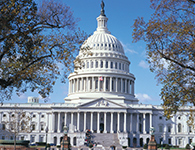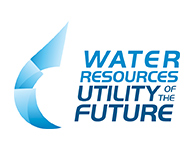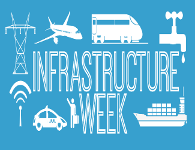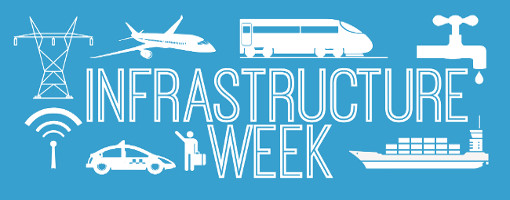EPA Proposes Array of Revisions to NPDES Permit Program, NACWA to Comment
 EPA proposed
EPA proposed  a number of updates to its National Pollutant Discharge Elimination System (NPDES) permit program May 18, including several provisions that could impact clean water agencies. While EPA describes most of the changes as having no or minimal impact on permittees, the true impact will depend on how a particular state is currently implementing its permit program. For example, EPA proposes to revise the existing definition of whole effluent toxicity (WET) to refer to both acute and chronic WET test endpoints. Although EPA argues that this change is consistent with the Agency’s current interpretation, in practice many permittees currently may only be required to address one of the endpoints by their permitting authority.
a number of updates to its National Pollutant Discharge Elimination System (NPDES) permit program May 18, including several provisions that could impact clean water agencies. While EPA describes most of the changes as having no or minimal impact on permittees, the true impact will depend on how a particular state is currently implementing its permit program. For example, EPA proposes to revise the existing definition of whole effluent toxicity (WET) to refer to both acute and chronic WET test endpoints. Although EPA argues that this change is consistent with the Agency’s current interpretation, in practice many permittees currently may only be required to address one of the endpoints by their permitting authority.
In addition, EPA is proposing to strengthen references to antidegradation provisions to ensure that permits are written consistent with state standards, as well as to clarify that any dilution allowances must comply with all applicable requirements. There are also several provisions directed at POTWs specifically, including clarifying when design flow should be used for calculating POTW limits, reporting of Non-Significant Categorical Industrial Users (NSCIUs), and timeframes for submitting new discharger data.
The most contentious provision in the proposal would allow EPA Regions to designate certain administratively continued permits as “proposed permits” and trigger an EPA review process. EPA is targeting permits that have been administratively continued for extended periods of time. Currently, EPA can only identify these permits as priorities and work with the states to get them revised and reissued. The proposed rule change would give EPA more leverage with the state for those permits it considers “environmentally significant.”
However, some of EPA’s potential triggers for use of this provision are basic elements of the Clean Water Act program, such as whether there is a new or revised water quality standard that has not been implemented in the permit. Given the frequency with which EPA revises its water quality criteria, this provision could pull in hundreds if not thousands of the approximately 17,000 facilities operating under expired permits as of September 2015.
NACWA will be reviewing the proposal carefully and will develop comments by the July 18 deadline. Members with comments on the proposal should send feedback to
Brenna MannionThis e-mail address is being protected from spambots. You need JavaScript enabled to view it
.
House Committee Releases Draft 2016 WRDA Bill
 On Friday, May 20th the House Transportation & Infrastructure Committee released a draft
On Friday, May 20th the House Transportation & Infrastructure Committee released a draft  of the House Water Resources Development Act (WRDA) of 2016. Committee leaders plan to formally introduce the bipartisan bill early this week and mark up the legislation as soon as Wednesday, May 25th.
of the House Water Resources Development Act (WRDA) of 2016. Committee leaders plan to formally introduce the bipartisan bill early this week and mark up the legislation as soon as Wednesday, May 25th.
As anticipated, the House WRDA is significantly smaller in both scope and funding than the Senate’s bill, focusing on the biannual review of U.S. Army Corps of Engineers (ACOE) activities and projects for flood control, navigation, and ecosystem restoration. Notably, the House WRDA bill does not include the stormwater provision which NACWA has been advocating for along with other water sector organizations. This provision would include coordination between the ACOE and local and regional entities on projects which may impact stormwater management. However, the Association is continuing to seek opportunities to have the provision included during markup.
In total, the House bill authorizes $5 billion in federal funding for ACOE activities, including approving 28 ACOE Chief’s Reports projects – the process by which Congress reviews and determines whether to fund ACOE projects. Water Resources and Environment Subcommittee Ranking Member Grace Napolitano (D-CA) also lauded that the House bill includes drought relief provisions. The $5 billion is offset by deauthorizations of previously-authorized projects which have not been completed. In comparison, the Senate WRDA authorizes 25 projects at about $9 billion in federal funding. The Senate bill also includes significant reforms and funding related to clean water and drinking water (see Advocacy Alert 16-07  ).
).
As the House bill moves toward Committee mark-up, the more comprehensive Senate bill has already passed out of Committee and awaits floor time. NACWA is working to encourage key Senators to support moving the bill to the Senate floor for a vote and hopeful passage. We encourage any utilities interested in this effort to tune into a webcast on Tuesday, May 24th (See reminder below). Contact
Pat SinicropThis e-mail address is being protected from spambots. You need JavaScript enabled to view it
i or
Kristina SurfusThis e-mail address is being protected from spambots. You need JavaScript enabled to view it
with questions on WRDA.
NACWA Ramps up Advocacy on Regulatory Status of Recovered Resources
 NACWA has learned that EPA Headquarters is working to draft a statement indicating that struvite recovered from the wastewater treatment process and subsequently used as a fertilizer should be regulated under the Part 503 biosolids regulations. NACWA is concerned that such a determination will have a chilling effect on the recovery of struvite and resources more broadly from the treatment process.
NACWA has learned that EPA Headquarters is working to draft a statement indicating that struvite recovered from the wastewater treatment process and subsequently used as a fertilizer should be regulated under the Part 503 biosolids regulations. NACWA is concerned that such a determination will have a chilling effect on the recovery of struvite and resources more broadly from the treatment process.
EPA has the full authority and discretion to make a determination that struvite is not a biosolid. NACWA is viewing this as a critical threshold issue for EPA's role as a partner in the "Utility of the Future" initiative, which requires the Agency to make critical regulatory decisions – like finding that struvite is not a biosolid – to bring about a more sustainable future.
The Association has been working on this issue for the past several years to exclude struvite and other recovered resources from the biosolids program, but many at EPA remain convinced that the Agency has no other alternative than to regulate these resources under the Clean Water Act. NACWA developed a legal analysis 
 in 2014 outlining why resource extraction from the treatment process should be handled separately from the existing regulations.
in 2014 outlining why resource extraction from the treatment process should be handled separately from the existing regulations.
However, EPA has thus far been resistant to discussing other approaches, including those used in Europe and Canada, that allow waste-derived products to pass through to regulatory programs intended for products such as commercial fertilizers. NACWA is working on a proposal that would provide an alternative framework for these materials in advance of a meeting in late June with senior Office of Water leadership. Please contact
Chris HornbackThis e-mail address is being protected from spambots. You need JavaScript enabled to view it
if you would like to track these issues and engage in a working group focused on this.
UOTF Recognition Award Deadline Near – Apply Now!
 The June 17 deadline for the Utility of the Future (UOTF) Today recognition program is just around the corner – make sure you submit your application now! The program will celebrate the progress and exceptional performance of our nation’s wastewater utilities while supporting the widespread adoption of the innovative UOTF business model.
The June 17 deadline for the Utility of the Future (UOTF) Today recognition program is just around the corner – make sure you submit your application now! The program will celebrate the progress and exceptional performance of our nation’s wastewater utilities while supporting the widespread adoption of the innovative UOTF business model.
The UOTF concept was first introduced in 2013 to guide utilities of all sizes toward smarter, more efficient operations and a progression to full resource recovery with enhanced productivity, sustainability, and resiliency. Since then, many utilities have successfully implemented new and creative programs to address local wastewater technical and community challenges. This new recognition program will build on this success by celebrating these advancements and experiences; encouraging the adoption of UOTF principles (water reuse, watershed stewardship, beneficial biosolids reuse, community partnering & engagement, energy efficiency, energy generation & recovery, and nutrient & materials recovery) and enabling participants across a broad range of capacities and capabilities to collaborate, learn, and continue to evolve as a unified sector.
Wastewater utilities of all sizes are encouraged to apply by 5:00 pm Eastern Time, June 17, 2016. Applicants must have no major permit violations in the past year prior to the submission date of their applications. Utilities receiving recognition will be notified by July 29 and recognized during an awards ceremony at WEFTEC 2016 this September in New Orleans. To learn more about the UOTF Today recognition program, visit www.wefnet.org/utilityrecognition or contact
UtilityRecognition@wef.orgThis e-mail address is being protected from spambots. You need JavaScript enabled to view it
.
Pretreatment Workshop Draws Large Crowd
 Over 150 pretreatment professionals convened last week at NACWA’s 2016 National Pretreatment & Pollution Prevention Workshop in Long Beach, CA. Janet Goodwin, Chief of the Technology & Statistics Branch of EPA’s Office of Water Engineering & Analysis Division, updated Workshop participants about the latest developments related to Effluent Limitation Guidelines (ELGs). EPA is conducting a study of the Metal Finishing Category, and it seems likely that changes to the ELG will result from this study.
Over 150 pretreatment professionals convened last week at NACWA’s 2016 National Pretreatment & Pollution Prevention Workshop in Long Beach, CA. Janet Goodwin, Chief of the Technology & Statistics Branch of EPA’s Office of Water Engineering & Analysis Division, updated Workshop participants about the latest developments related to Effluent Limitation Guidelines (ELGs). EPA is conducting a study of the Metal Finishing Category, and it seems likely that changes to the ELG will result from this study.
During the Pretreatment & Pollution Prevention Committee meeting that was held during the Workshop, committee members provided Goodwin with additional input on this category. Committee members also shared their opinions on other ELGs that should be studied and updated. Many ELGs that were developed decades ago do not reflect current technology and practices of industries, and some new impacts on POTWs have emerged. Goodwin expressed an interest in continuing these conversations and gathering further information from NACWA members.
Prior to the Workshop, over 90 individuals participated in three different training courses: Pretreatment 101, Advanced Local Limits, and a course on wipes. NACWA plans to offer training courses again at next year’s Workshop, including courses on new topics. All the handouts and presentations from the Pretreatment Workshop are available on NACWA’s website. The Association thanks all the participants for making this year’s Workshop a great success!
Infrastructure Week Highlights Importance & Needs of Water Sector
 Infrastructure Week was celebrated last week in Washington, DC and across the county as NACWA and many Association members participated in and hosted events to highlight the importance of municipal clean water utilities in the nation’s overall infrastructure discussion.
Infrastructure Week was celebrated last week in Washington, DC and across the county as NACWA and many Association members participated in and hosted events to highlight the importance of municipal clean water utilities in the nation’s overall infrastructure discussion.
The Value of Water Coalition (VOW), of which NACWA is a member, played a leading role in helping to organize Infrastructure Week, including an opening kickoff breakfast on May 16 at the U.S. Chamber of Commerce featuring a variety of speakers and panels addressing broad infrastructure concerns. A panel of mayors from Syracuse, NY, Kansas City, MO, and Spokane, WA provided particularly poignant insights into the key water infrastructure challenges facing communities at the local level.
NACWA also participated in an Infrastructure Week Advocacy Day press event on May 18 featuring remarks by Members of Congress and infrastructure sector leaders. The Congressional speakers stressed that infrastructure is an important issue that transcends party lines and is critical for public and economic health as well as for staying competitive globally. The American Society of Civil Engineers also highlighted findings from their new study, Failure to Act: Closing the Infrastructure Investment Gap for America’s Economic Future  , which finds a $1.4 trillion infrastructure investment need and predicts that failure to address this investment gap by 2025 will cause a $4 trillion loss in GDP and a loss of 2.5 million jobs. Additionally, NACWA attended a Congressional briefing May 19 sponsored by VOW and the National League of Cities focused on water infrastructure challenges at the local level.
, which finds a $1.4 trillion infrastructure investment need and predicts that failure to address this investment gap by 2025 will cause a $4 trillion loss in GDP and a loss of 2.5 million jobs. Additionally, NACWA attended a Congressional briefing May 19 sponsored by VOW and the National League of Cities focused on water infrastructure challenges at the local level.
Outside of Washington, NACWA members in Camden, NJ, Cleveland, OH, Hampton Roads, VA, Chicago, IL, Honolulu, HI, and Alexandria, VA all hosted events – many at local wastewater treatment facilities – educating their local residents about the importance of water infrastructure in their communities. Thanks to everyone who helped make Infrastructure Week a success!
Register Now for NACWA’s 2016 Utility Leadership & Summer Conference!
 Registration is now open for NACWA’s 2016 Utility Leadership Conference and 46th Annual Meeting, Leadership Strategies for the Smart Utility. A preliminary agenda
Registration is now open for NACWA’s 2016 Utility Leadership Conference and 46th Annual Meeting, Leadership Strategies for the Smart Utility. A preliminary agenda  is now available, including the lineup of NACWA’s Standing Committees that will meet during the Conference. The conference will explore a range of management-focused topics, including strategies for transformational utility leadership, innovative management approaches being implemented by utilities across the country and tactics for more effective communications with ratepayers. Please make your plans now to join us July 10-13, in Denver, Colorado.
is now available, including the lineup of NACWA’s Standing Committees that will meet during the Conference. The conference will explore a range of management-focused topics, including strategies for transformational utility leadership, innovative management approaches being implemented by utilities across the country and tactics for more effective communications with ratepayers. Please make your plans now to join us July 10-13, in Denver, Colorado.
Region 4 Clean Water Meeting Quickly Approaching, New EPA Speaker Announced!
 NACWA and the Georgia Association of Water Professionals (GAWP) will host a Region 4 Clean Water Utility Leader Dialogue, June 8th from 10:30 am – 3 pm, at the Marriot Marquis in Atlanta, GA. We are excited to announce a special guest lunch speaker from U.S. EPA: Chris Kloss, the Municipal Branch Chief of the Water Permits Division, who will talk about the priorities of the Division and take your questions!
NACWA and the Georgia Association of Water Professionals (GAWP) will host a Region 4 Clean Water Utility Leader Dialogue, June 8th from 10:30 am – 3 pm, at the Marriot Marquis in Atlanta, GA. We are excited to announce a special guest lunch speaker from U.S. EPA: Chris Kloss, the Municipal Branch Chief of the Water Permits Division, who will talk about the priorities of the Division and take your questions!
This roundtable for utility leaders is free of charge and open to NACWA members and non-members alike. A draft agenda and registration can be found at www.nacwa.org/16r4w. We look forward to a great discussion and hope your utility's voice will be included.
NACWA Provides Advocacy Update at Wet Weather Partnership Conference
 NACWA participated in the annual Wet Weather Partnership Conference last week in Louisville, Kentucky, providing an update on key national clean water developments and the importance of continued advocacy by the municipal clean water community. In her remarks, NACWA General Counsel Amanda Waters highlighted NACWA’s efforts to secure strong funding for the State Revolving Fund programs in the federal Fiscal Year 2017 budget as well as legislative efforts related to the Water Resources Development Act
NACWA participated in the annual Wet Weather Partnership Conference last week in Louisville, Kentucky, providing an update on key national clean water developments and the importance of continued advocacy by the municipal clean water community. In her remarks, NACWA General Counsel Amanda Waters highlighted NACWA’s efforts to secure strong funding for the State Revolving Fund programs in the federal Fiscal Year 2017 budget as well as legislative efforts related to the Water Resources Development Act  .
.
The presentation also identified a number of important national regulatory priorities including NACWA’s ongoing collaborative work with other wastewater associations and the wipes industry to update flushability guidelines, as well as EPA’s continuing efforts to develop recreational water quality criteria using coliphage as an indicator for harmful pathogens. Two of NACWA’s regulatory priorities - EPA’s Small MS4 Remand Rule  and the USGS Report on Hydrologic Alteration - were addressed by other speakers at the conference.
and the USGS Report on Hydrologic Alteration - were addressed by other speakers at the conference.
Waters additionally promoted the Association's Wet Weather Consent Decree Handbook and related online Consent Decree e-Library as important resources for municipal utilities on wet weather enforcement issues.
Several Association Member Agencies spoke at the conference including the Louisville & Jefferson County Metropolitan Sewer District; DC Water; Springfield, MO; and San Francisco Public Utilities Commission.
NACWA Participates in Blue Cities 2016
 NACWA travelled “north of the border” last week and participated in in Blue Cities 2016, a conference hosted by Canadian Water Network in Toronto, Ontario, Canada. NACWA was represented by Deputy General Counsel Erica Spitzig, who participated on a panel on the business of getting to sustainable systems. The Association’s presentation focused on Flint, Michigan as a case study of the challenges utilities face in setting rates that reflect the true cost of water, and also shared how NACWA is working to advance a new water paradigm.
NACWA travelled “north of the border” last week and participated in in Blue Cities 2016, a conference hosted by Canadian Water Network in Toronto, Ontario, Canada. NACWA was represented by Deputy General Counsel Erica Spitzig, who participated on a panel on the business of getting to sustainable systems. The Association’s presentation focused on Flint, Michigan as a case study of the challenges utilities face in setting rates that reflect the true cost of water, and also shared how NACWA is working to advance a new water paradigm.
Blue Cities 2016 was the inaugural event of the Canadian Municipal Water Consortium, bringing together municipal water leaders, industry partners and topic experts from across Canada and the globe. Participants at the conference discussed ongoing change, the need for resiliency, and sustainable solutions for the future.
Clean Water Services Unveils Energy Generation Partnership
 NACWA Member Agency Clean Water Services in Hillsboro, Ore. announced an innovative partnership earlier this month with Energy Trust of Oregon and the Oregon Department of Energy. The project will bring a 1.7-megawatt cogeneration system fueled by biogas produced from the anaerobic digestion of municipal wastewater solids as well as fats, oils and grease (FOG) from Washington County restaurants and other businesses to Clean Water Services’ Durham Treatment Facility.
NACWA Member Agency Clean Water Services in Hillsboro, Ore. announced an innovative partnership earlier this month with Energy Trust of Oregon and the Oregon Department of Energy. The project will bring a 1.7-megawatt cogeneration system fueled by biogas produced from the anaerobic digestion of municipal wastewater solids as well as fats, oils and grease (FOG) from Washington County restaurants and other businesses to Clean Water Services’ Durham Treatment Facility.
Clean Water Services provides wastewater and watershed management services to more than 560,000 customers in the Tualatin River watershed in Oregon, and the new system triples the agency’s renewable energy generation - creating 58 percent of the electricity needed to run facility - and a total of 60 percent when coupled with its existing solar electric system. Renewable electricity and heat produced will be used onsite, reducing operating costs for Clean Water Services by nearly $800,000 annually, ensuring value for its ratepayers, and reducing carbon dioxide production by 6,000 tons per year.
The partnership between Clean Water Services, Energy Trust, and the Oregon Department of Energy also provided nearly a third of the funding to allow the project to move forward. The $16.8 million project was funded by Clean Water Services, but the agency received $3 million in cash incentives from Energy Trust and $2.8 million in tax credits from the Oregon Department of Energy. Since 2004, Clean Water Services has worked with Energy Trust on more than 100 energy-saving improvements throughout its facilities resulting in more than 9 million kilowatt-hours of electricity saved per year for the utility. The project also represents one of many examples of how NACWA Member Agencies embody the Water Resource Utility of the Future by embracing and implementing innovative approaches to energy production at their facilities.
- Register today for the U.S. Water Alliance’s One Water Leadership Summit, June 8-10, 2016, in Atlanta, GA. The Summit is the premier gathering of the country’s sharpest minds addressing our nation’s most urgent water challenges to build stronger and more prosperous communities.
- Apply for the Utility of the Future (UOTF) Today recognition program by 5:00 pm Eastern, June 17, 2016 (see related article). Applicants must have no major permit violations in the past year prior to the submission date of their applications.

Building 21st Century Infrastructure for 21st Century Cities
Radhika Fox, CEO of the U.S. Water Alliance, celebrates Infrastructure Week with a guest blog on The Water Voice highlighting the importance of clean water infrastructure in the nation’s overall infrastructure dialogue. Read on to learn more!